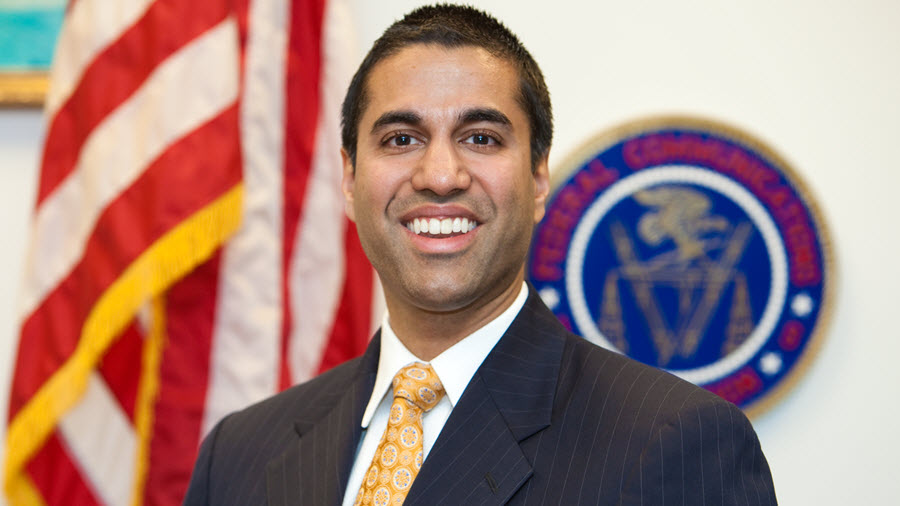Pai Calls 2015 Open Internet Order 'Dumb Pipes' Approach

The smarter way to stay on top of broadcasting and cable industry. Sign up below
You are now subscribed
Your newsletter sign-up was successful
FCC chair Ajit Pai pitched his network-neutrality rules rollback to an international audience Tuesday (July 10).
He was in Geneva for the Global Symposium for Regulators 2018 (GSR 18) and took the opportunity to promote his new policy somewhat at the expense of the old order.
"I often say that dumb pipes won’t deliver smart cities," Pai told the audience, according to a copy of the speech. "That’s why we reversed the previous administration’s decision to impose 20th century utility-style regulations on our 21st century networks."
That was a reference to former chair Tom Wheeler's Open Internet Order, which classified ISPs as Title II common carriers.
Pai called his deregulatory alternative -- reclassifying ISPs under Title I and eliminating the rules against blocking, throttling and paid prioritization -- was a market-based, flexible, light-touch approach that promoted the kind of investment that allows for next-gen technologies like AI, which was the main topic of his speech.
He also talked up the FCC's efforts to clear spectrum for next-gen wireless in a wide swath of bands (the FCC has teed up an item on sharing C-band spectrum for a July 12 vote, for example), saying that if he listed all the ways the FCC was doing that, it "would eat up more than the remainder of my time," then added: "[W]e didn’t wait to make spectrum available until we established 5G standards through a government-led process. We put our faith in the industry to develop standards through a private-sector led process, as we did with 4G."
Related: Rep. Cole Says Noncoms Must Be Protected in C-Band Sharing
The smarter way to stay on top of broadcasting and cable industry. Sign up below
Finally, Pai said universal access to the digital revolution -- including AI, blockchain, and virtual and augmented reality -- should be job one abroad and at home, given that billions of people around the world remain unconnected, he said.
And in a digital kumbaya moment, he said, "[U]unlike regulatory intervention — which can deter innovation and detract from scarce public and private resources — a focus on connectivity can unite us as we seek to promote more innovation and greater international unity."
Contributing editor John Eggerton has been an editor and/or writer on media regulation, legislation and policy for over four decades, including covering the FCC, FTC, Congress, the major media trade associations, and the federal courts. In addition to Multichannel News and Broadcasting + Cable, his work has appeared in Radio World, TV Technology, TV Fax, This Week in Consumer Electronics, Variety and the Encyclopedia Britannica.

